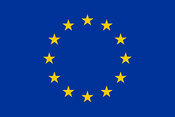How to secure the future of cultural heritage at risk from climate change?
Developing a climate-smart adaptation planning and its prioritization process in the Netherlands
The Netherlands is particularly vulnerable to climate change effects. These climate change effects will likely have serious impacts on non-renewable and irreplaceable cultural heritage threatening a wide range of economic, socio-cultural and environmental benefits these heritage assets provide to current and future generations. In response to these increasing climate risks, this 2-year project focuses on: (A) assessing climate change risks to diverse cultural heritage in the Netherlands, (B) identifying current heritage policy and management barriers, their interdependencies, and strategies for overcoming barriers in cultural heritage management and policy facing changing climate; (C) advancing scientific understanding of cultural heritage benefits for supporting climate change actions; and (D) and designing climate-smart adaptation planning of cultural heritage in the Netherlands.
This project is important to advance scientific knowledge of cultural heritage and climate change intersection so in the Netherlands as in Europe and globally. The project can help various decisionmakers and stakeholders to better understand the impacts of climate change on cultural heritage and inform timely and effective climate adaptation decisions for cultural heritage. The project aligns with the goals and principles of the UNFCCC Paris Agreement and UN Sustainable Development Goals. It also demonstrates the interdisciplinary approach required by the European Commission as vital for protecting and adapting European cultural heritage in the face of climate change.
Facts
| Funder: | European Union |
| Programme: | Horizon 2020 Research and Innovation Programme Marie Sklodowska-Curie grant |
| Grant number: | 707404 |
| Role TU Delft: | Principal Investigator |
| Project duration: | January 2019 - January 2021 |
| TU Delft researchers: | Dr. Sandra Fatoric |
